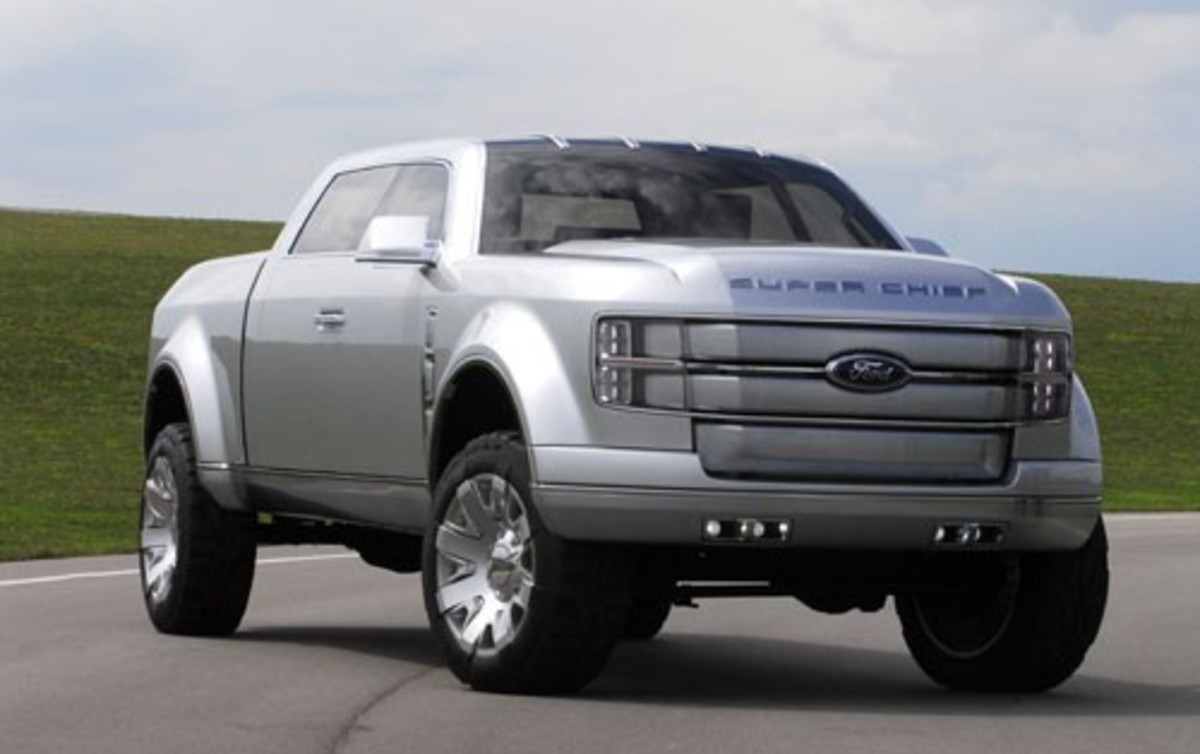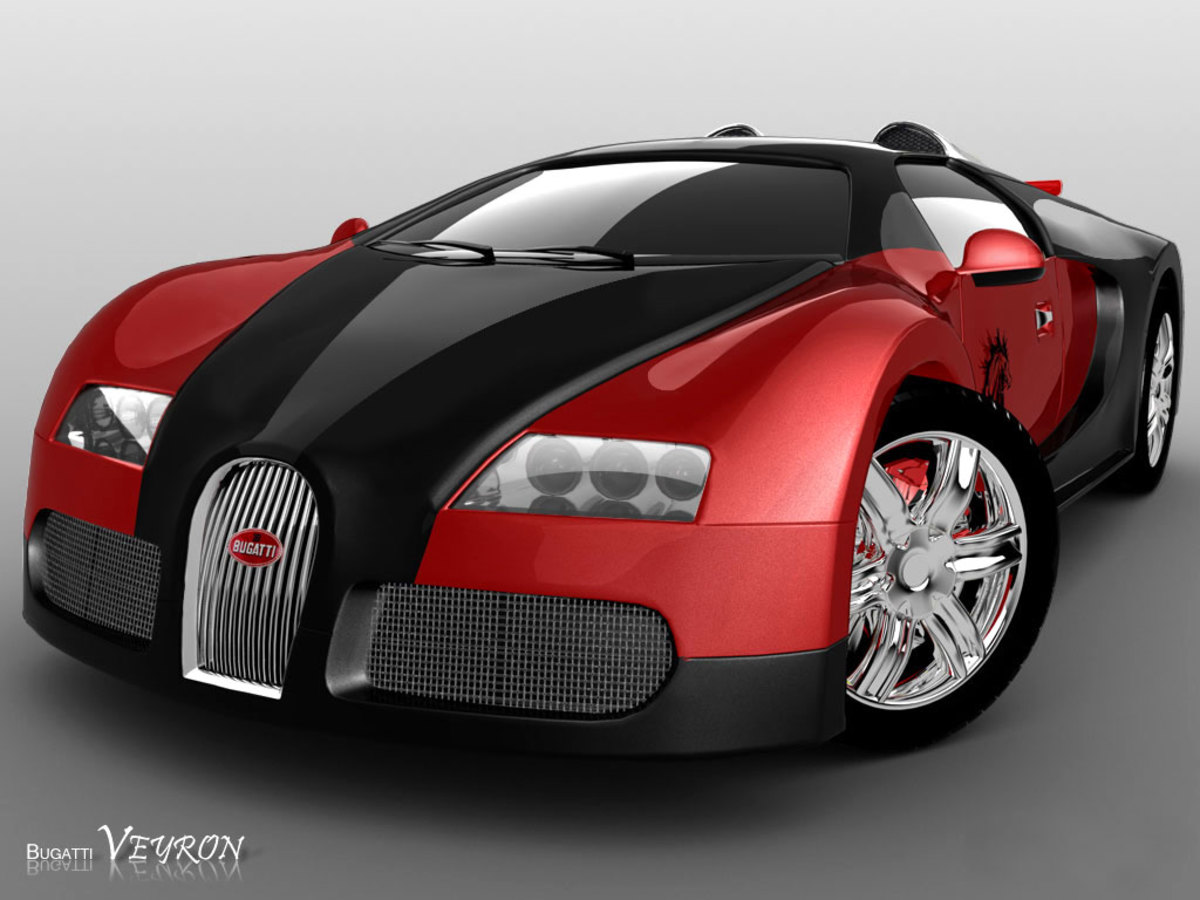New Honda City vs Maruti SX4: Compared Gear Ratios, RPM, Tire Profile, BHP, Torque
After going through a number of reviews and compares between New Honda City and Maruti SX4, I thought of writing my own review but in a unique style which no one else has done before. This is the reason why today I am comparing New Stylish City with Macho SX4 is terms of gear ratio, RPM, BHP, torque, and tire profile. Before starting the compare first of all I want to clear the doubts of several people who say that Honda City has more BHP than SX4. For them, I would say that if SX4 does not have BHP, then how come this big elephant had crawled, it is very natural of us to speak of pickup (technically torque). If you are getting good GC (SUV feel), it is because of tire profile. If SX4 would have been slow at 15 seconds to 0 to 100, I bet everyone would have started cribbing about this car. We do have a lot of parameters (looks definitely - very contemporary) before purchasing the car. SX4 is no doubt a very good car when it comes to safety - it has proved itself after some unfortunate highway accident of my friend where he survived just because of this macho car. That would be a valid point too when we discuss about cars. But at the same time we cannot rule out torque, BHP, etc. which most people don’t explain very well in their reviews or compares. These are the technicalities which challenge the manufacturer’s engineering.
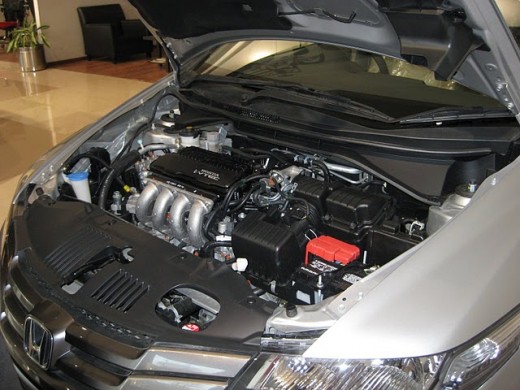
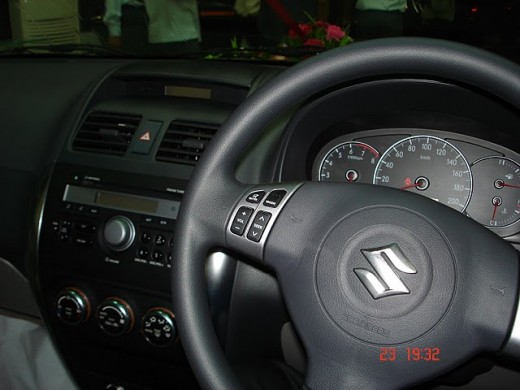
The market and competition has changed a lot since last year. Every car manufacturer wants to give a bang for our buck. With time everyone has to change. Maruti Zen Estilo’s re-engineering is a hot example of why a manufacturer would like to plonk a less CC engine, which is capable of producing more BHP and more torque, and revv as freely as 6600 RPM. Also, this engine has improved the NVH and transmission system (cabled gearing). So taking all these technicalities into account before buying a car does make sense. I am not against Maruti (my previous two cars were also Maruti) but looking at the competition, manufacturers like Honda and Hyundai are giving more punch from relatively lesser CC engines. City is only 1.5 liters. I know there may be several people who will say what we have to do with these things. We just need to buy a car with good looks, trendy style, good interiors, exteriors, that’s it. I agree that these things are important but not only important. There are other factors like power, torque, gear ratio that should be taken into account so that you buy the best car out of your hard money. So here is my extensive comparison of both cars, City vs SX4 in terms I have already mentioned above:
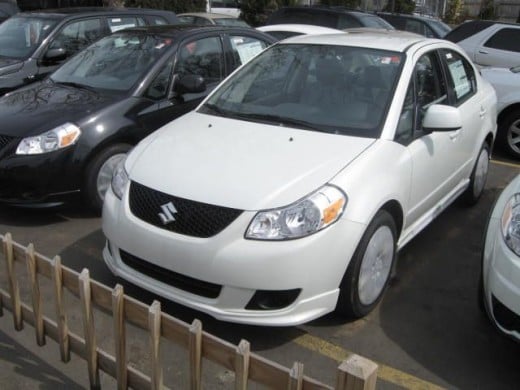

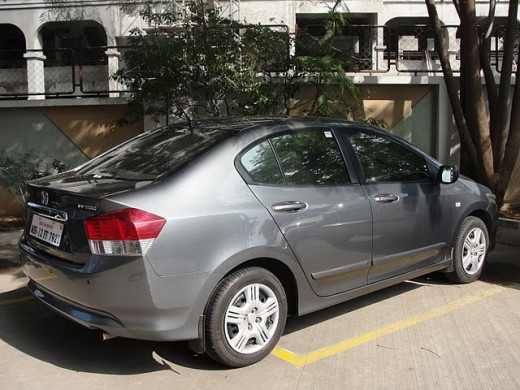
First of all, to gain some insight of gear ratio, check out this wikipedia link: Gear Ratio and also check out How Stuff Works
Let’s calculate gear ratio of both cars via Perfect Shifting Gears
Now there’s a reason why SX4 does 179 kilometers per hour theoretical max with 102 BHP engine and reason why it does 0-100 in 12 - 13 seconds.
Just use these values:
Choose no. of gears as 5 (discount reverse gear)
Final Drive: 4.411
At first Gear, 3.545
At second Gear, 1.904
At third Gear, 1.310
At fourth Gear, 0.969
At fifth Gear, 0.815
Weight: 1200 kg plus your weight (More weight increases acceleration time)
We can observe that VXi with lesser weight and different tire profile is quicker than ZXi by a second. Phew!
Cx: 0.3 (These are drag co-eff)
Frontal Area: 1.9 (These are for drag co-eff)
Max RPM: 5250 (not 5500, there is a reason for this)
Max Torque: 145 nm
Transmission Loss as 5% to 10% (being FWD)
Shift Time is 0.5 seconds (Best anyone can do while shifting gears)
Tire Settings: 205/60/R16
And this is what I get:
Maximum speed: 179 kilometers per hour at 5250 RPM, 102 HP at fifth gear
Try the speed RPM/gear
So these are the top speeds:
At first Gear, 41 kilometers per hour
At second Gear, 76 kilometers per hour
At third Gear, 111 kilometers per hour
At fourth Gear, 150 kilometers per hour
At fifth Gear, 179 kilometers per hour
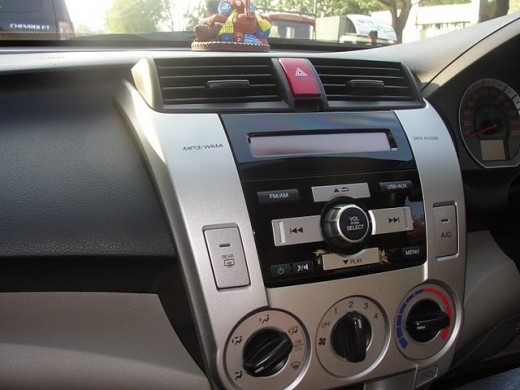
Check out the gear shifting point section:
When you want to do 0 to 180, it recommends changing first to second gear at 2800 RPM
It recommends changing second to third gear at 3600 RPM
It recommends changing third to fourth gear at 3900 RPM
It recommends changing fourth to fifth gear at 4200 RPM
So my formula:
(My assumption is torque curve is linear)
If you want to drive at top speed of 80 kilometers per hour for good FE, adjust the RPM shift accordingly.
I recommend changing first to second at 1250 RPM
I recommend changing second to third at 1600 RPM
I recommend changing third to fourth at 1750 RPM
I recommend changing fourth to fifth at 1860 RPM
Any enlightening in this section is most welcome. I am not an automobile engineer and all pointers are welcome.
If you check out Speed RPM/Gear, you will see that: (to cruise at 80 kilometers per hour)
When you are in Gear 1 @ 1260 RPM (2800 rpm * 80/180) -> you are at 10 kilometers per hour
When you are in Gear 2 @ 1600 RPM (3600 rpm * 80/180) -> you are at 15 kilometers per hour
When you are in Gear 3 @ 1750 RPM (3900 rpm * 80/180) -> you are at 37 kilometers per hour
When you are in Gear 4 @ 1860 RPM (4200 rpm * 80/180) -> you are at 53 kilometers per hour
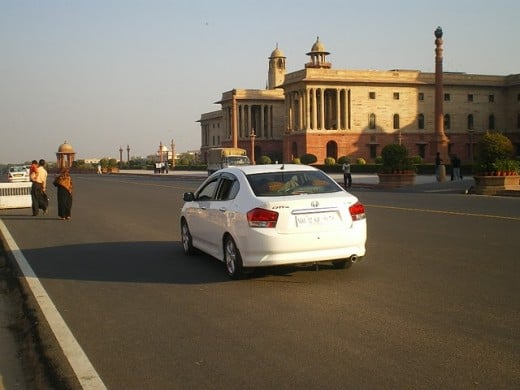
Now Maruti recommends 60 kilometers per hour speed for good FE.
Let us take this use case as well: (This is an interesting finding)
Change first to second at 933 RPM (2800 rpm * 60/180)
Change second to third at 1200 RPM (3600 rpm * 60/180)
Change third to fourth at 1300 RPM (3900 rpm * 60/180)
Change fourth to fifth at 1400 RPM (4200 rpm * 60/180)
When you are in Gear 1 @ 933 RPM -> you are at 7 kilometers per hour (Maruti recommends to shift to second gear at 10 kilometers per hour)
When you are in Gear 2 @ 1200 RPM -> you are at 17 kilometers per hour (Maruti recommends to shift to third gear at 20 kilometers per hour)
When you are in Gear 3 @ 1300 RPM -> you are at 28 kilometers per hour (Maruti recommends to shift to fourth gear at 30 kilometers per hour)
When you are in Gear 4 @ 1400 RPM -> you are at 40 kilometers per hour (Maruti recommends to shift to fifth gear at 40 kilometers per hour)
Slight difference is due to real world inefficiency and actual nonlinear torque curve.
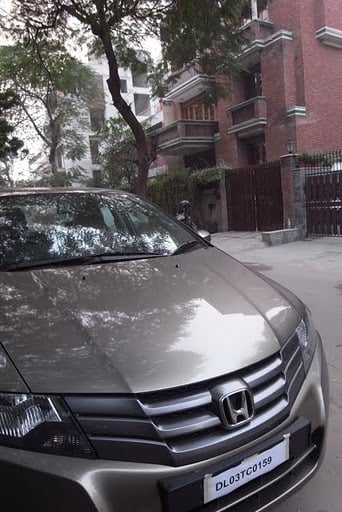
New Honda City vs Maruti SX4
From the above calculator, I observed that changing tire profile (to 17 or 18) increases your top speed. One more observation and it is that torque is responsible for pickup. The RPM that indicates best torque gives you best pulling power. So your perfect shifting values will also vary depending on your torque curve.
Last but not the least; if I extrapolate SX4’s 102 BHP @ 5250 RPM, I get 114 BHP (116ps) @ 6000 RPM. Also 145 and 146 kgm of torque are similar, so technically acceleration of Honda City is slightly better (due to less weight). However top speed of Maruti SX4 is better due to bigger tire profile. It is almost impossible in a city to hit 6000 RPM and exceed 180 kilometers per hour. So SX4 is at its limits at 5500 RPM and same for Honda City at around 5500 RPM. New Honda City will never go fruitful beyond 5500 RPM and exceed 180 kilometers per hour with its present profile of tires. Suzuki should work on VVT to improve BHP and increase RPM limit, whereas Honda should improve their tire profile. Both are technically the same. Honda has a very minute edge due to valve technology resulting in extra 1 kgm of torque, so both are brothers in terms of performance. However, 0 to 100 will a different story for them.
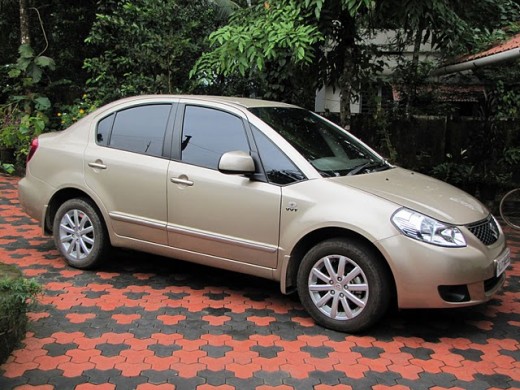
Moral of the Story
Both Maruti SX4 and Honda City are 102 BHP at 5250 RPM. Top speed of both is around 180 kilometers per hour. Maximum torque for both is 145 kgm @ 4200 rpm/146 kgm @ 4600 rpm respectively. It will be nice to compare torque curve at different speeds. Yes, theoretically SX4 will give 116.5 BHP (118 PS) @ 6000 RPM and, 128.2 HP at 6600 RPM. Issue with Suzuki engines are that they are no easy revving beyond 5500 RPM and torque falls drastically, but yes if Suzuki refines its engine to go for higher RPMS (only possible with VVT or turbocharger upgrade to improve air intake via smart valves), you can dream of that power. So while buying car most buyers fail to recognize the RPM at which the power is delivered. We hardly go to RPM limits at extract that juice. Come on 6600 RPM is a way too mad to drive and push the machine to limits. After all when the car starts at 1000 RPM in first gear, it’s a puny 20 HP power that moves you. All that matters is torque (and that too better if it as at lower RPMS). According to me, both Honda City and SX4 are best in the segment also taking into account resale value, interiors, exteriors, and looks and appearance which everyone is mad about. Now, everyone is waiting for the launch of Honda City Diesel ICTDI in two years from now. Maruti SX4 massive turbo charged diesel engine is already roaring on Indian roads at a price tag of approximately 8.62 lakhs. With powering City with diesel, Honda is planning to give competition to Maruti, Hyundai, Toyota, Fiat, and Volkswagen all having diesel engines in various segments.


